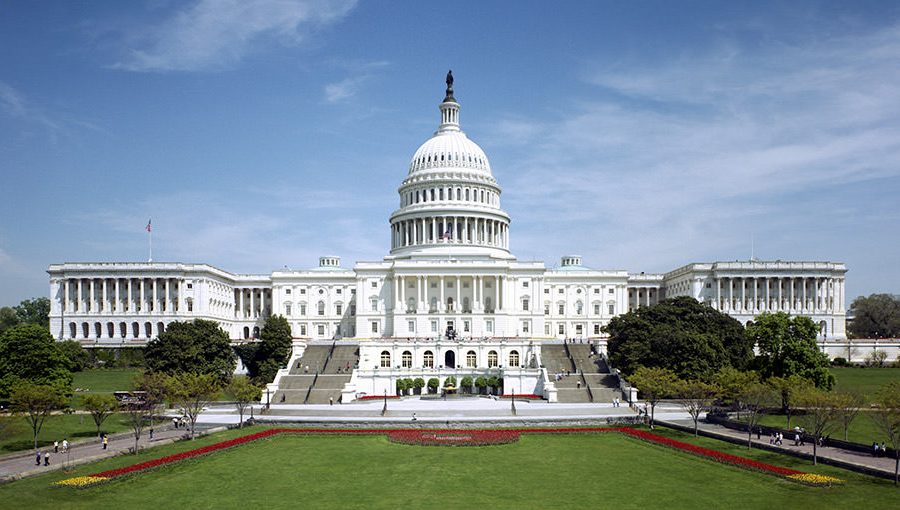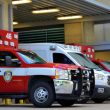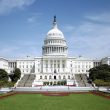Coalition expresses urgent need for NG911 funding, wants more than proposed $10 billion
ANAHEIM—Public Safety NG911 Coalition representatives expressed support for legislation that calls for as much as $10 billion in spectrum-auctions proceeds to be used to fund the transition to next-generation 911 technology, but they want the money to be available soon and believe more than $10 billion is necessary.
These statements were made yesterday during a session at the APCO 2022 event that was moderated by APCO CTO Mel Maier, chairman of the Public Safety NG911 Coalition.
Maier noted that public-safety organizations have sought funding for NG911 funding from the federal government several times in the past, making it even more important that legislation that recently passed the House also be approved by the Senate.
“Here’s the most important thing: This needs to get done yesterday,” Maier said. “It should have been done years ago. We want to get this funding into your [public-safety attendees’] hands. We want to get this deployed nationwide.”
Legislation with that would extend the FCC’s auction authority by 18 months and allow spectrum-auction proceeds to be used to fund NG911 and a “rip-and-replace” program to rid U.S. communications networks of equipment from China-based vendors was approved by the House overwhelmingly with bipartisan support. However, language in the bill would only make the NG911 funding available after a proposed 3.1-3.45 GHz auction is conducted, and the proceeds may not be available for several years.
With this in mind, Maier confirmed that there are ongoing discussions that are attempting to provide greater certainty about the funding and to make the money available sooner. One idea is to start NG911 deployments with funding borrowed from the U.S. Treasury in the near term, and that money would be repaid after the FCC auction—an approach used to fund the FirstNet Authority in its early years.
“The fact is that we needed this yesterday,” Maier said. “And what we’re looking at is legislation that has—in one form or another—been before several iterations of Congress.
“For us, as we look at that funding waterfall, we have expressed our concerns to the Senate that, in fact, is [any federal funding] going to be readily available for next-generation 911 deployments in a timely matter. When we look at things such as borrowing authority—which I think was one of the modalities that FirstNet actually used to get itself started—there’s a potential for things like that.”
Laura Cooper, executive director for the Major Cities Chiefs Association, said that she wants to see the amount of NG911 funding in the legislation increased from its current $10 billion cap. Many in public safety have advocated for $15 billion, and that figure was cited before the global economy was hit with strong inflationary forces and supply-chain issues.
“I know that we’ve been hearing the number $10 billion,” Cooper said. “I just want to make it clear that, when we’re talking about the number $10 billion, that—in our estimation—is the absolute minimum. That doesn’t even come close to scratching the surface. $10 billion is not enough whatsoever to do what needs to be done.
“Even if you take inflation and factor that in on a little calculator on the Internet, we are well past $10 billion, which is where we were years ago. When you talk about money, it is a lot of money. But when you start spreading that out, there’s less and less and less. That’s of great concern, especially when we’re talking about issues like training, cybersecurity and everything else. That money’s quickly going to vanish. So again, $10 billion is actually not the number we need.”
And NG911 funding needs to be made available to jurisdictions of all sizes, not just metropolitan areas, according to Cooper.
“We’re in a position with Major Cities where we have advocated through the coalition to say that it should be based on a needs assessment, so that the money doesn’t just flow to a major urban area, based on population,” Cooper said. “It would actually go toward those jurisdictions that need it the most, build out that capability and then keep going.
“What we’re saying is that this can’t be just an injection into the cities—that’s not going to work for everybody. That’s truly a disservice for public safety overall. So, as part of the coalition, we’re advocating not just for ourselves—obviously, we’ll eventually get some of the money, hopefully—but that it does serve the smaller jurisdictions.”
One problem that public safety faces while seeking NG911 funding is communicating the need properly to lawmakers who may not understand the issues fully, according to Chris Lombard, deputy fire chief for the city of Seattle.
“I’ve heard it countless times just in the couple of days that we been here and talking as industry partners: For being in communications, it’s amazing what we a pathetic job we do collectively—not individually but collectively—at communicating some of our concerns, challenges and needs,” Lombard said.
Cooper agreed, noting that problem is particularly evident on Capitol Hill.
“We do have a marketing issue,” Cooper said. “I would say, in general—I hope this doesn’t offend anybody—but next-generation [911] seems to be the unsexist topic you could possibly talk about with a member of Congress. It’s a little dry. You have to [spice] it up a little, and we do that normally by sharing horror stories, which is really sad and depressing. But it is what it is.”
















